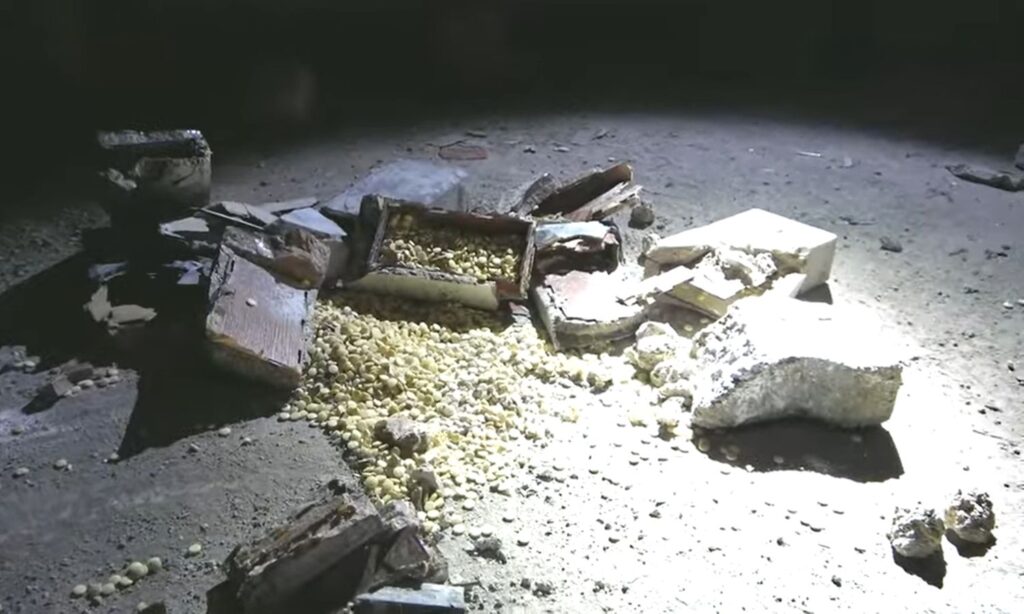The Syrian Democratic Forces (SDF) reported its forces carried out a raid targeting a drug depot in the city of Manbij, during which they seized quantities of drugs, later confirmed to have originated from the coastal city of Tartus under Syrian regime control.
Through its official website on Monday, March 4, the SDF stated that their forces raided a warehouse near the al-Hal market in the city of Manbij last Wednesday, seizing “large quantities of narcotics” cleverly concealed within the paving stones used for road surfaces.
The SDF mentioned that the amount seized within the warehouse was estimated to be 20 million Captagon pills.
The initial information obtained from investigations on the source of the captured narcotics indicated that they had been shipped from the city of Tartus on the Syrian coast.
The SDF accompanied the announcement of the operation with a video recording, displaying the extraction of narcotic pills from the paving stones typically used for street paving.
On February 29, the Internal Security Forces (Asayish) of the Autonomous Administration of North and East Syria (AANES), reported they had confiscated 164,000 Captagon pills in Raqqa. It was later revealed that the drugs had been smuggled into the area from Homs province, under regime control.
The Asayish released a video recording of a security operation, stating it was part of efforts to track down drug traffickers in the region, during which they seized a “large quantity” of Captagon.
In a separate announcement published on its official website, the Asayish shared that on February 20, their General Directorate for Drug Control had arrested four drug dealers in Raqqa, and confiscated thousands of narcotic pills.
The Syrian regime has been accused of being involved in the production and smuggling of drugs to neighboring countries, accusations which it has not officially acknowledged despite years of such claims.
Reports from specialized agencies and journalistic investigations supported by evidence have shown the involvement of the family of the Syrian regime’s president, Bashar al-Assad, and his close associates in particular, in drug manufacturing networks and the trade of exporting these drugs from Syria to other countries.
An investigation published by The New York Times in December 2021 revealed that the Fourth Division of the Syrian regime forces, led by Maher al-Assad, Bashar al-Assad’s younger brother, was responsible for manufacturing and exporting Captagon, as well as dominating the trade through businessmen with close ties to the regime, Hezbollah, and other members of the Assad family.
A study released by the Center for Operational Analysis and Research (COAR) at the end of April 2021 indicated that Syria has become a global hub for the production of Captagon, with the drug manufacturing industry evolving to be more technically advanced than ever before.
In 2020, the value of Syria’s Captagon exports alone exceeded 3.46 billion US dollars, according to COAR.

